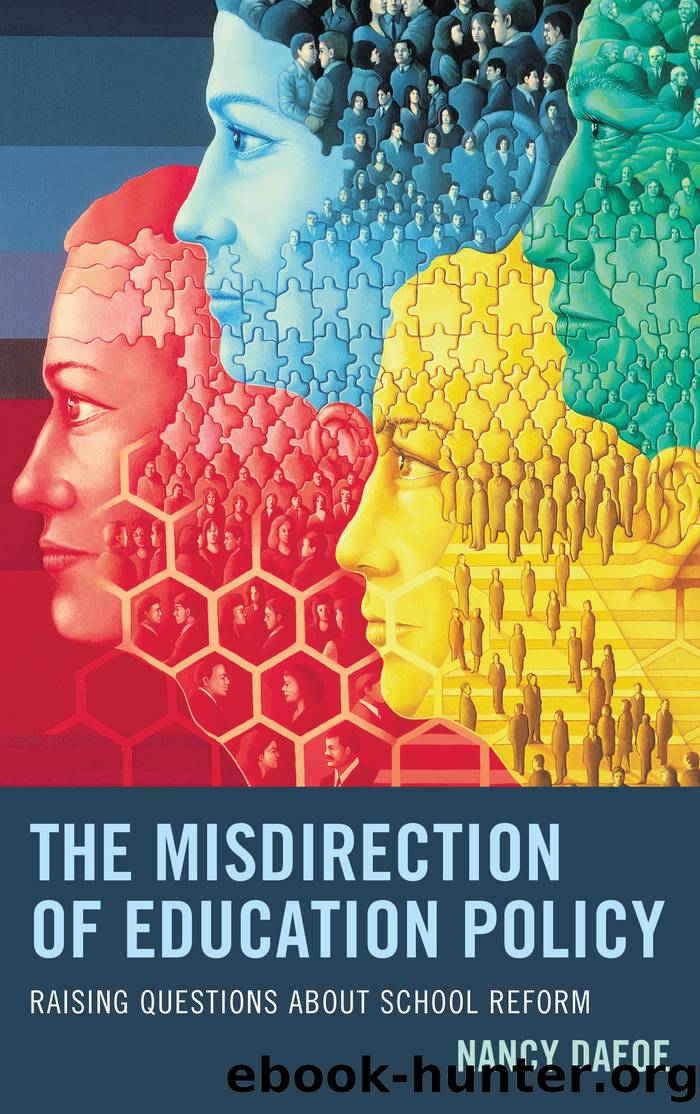The Misdirection of Education Policy by DaFoe Nancy;

Author:DaFoe, Nancy;
Language: eng
Format: epub
Tags: undefined
Publisher: Rowman & Littlefield Publishers, Incorporated
Published: 2012-08-15T00:00:00+00:00
Darwin, it would appear, understood the profundity of the loss when he turned from the arts. Here, the great and exacting scientist admits to a mistake in his approach: he did not make it a ârule to read some poetry and listen to some music at least once every week.â Darwin would probably not have had much sympathy for the current STEM movement in education.
Reading literature is not easy nor is it hard fact. It is not designed to help us create the next generation of iPhone. Literature does not teach âlessons,â as Vladimir Nabokov aptly put it, but it does connect us in ways that no other field of study is able to do so well. Nabokov wrote in his novel Despair, âTo begin with, let us take the following motto . . . Literature is Love. Now we can continue.â[7]
If you donât know the opening to Tolstoyâs novel Anna Karenina, you should seek it out: âHappy families are all alike; every unhappy family is unhappy in its own way.â[8] So begins Tolstoyâs most perfect novel and one of the reasons why literature needs to be taught and read. Of course, reading Anna Karenina is not likely to lead to new technological developments nor will reading it affect the global economy.
Bluntly stated, reading Anna Karenina will not advance STEM education, ESSA, Race to the Top, No Child Left Behind, nor will it neatly meet the political agendas behind these twenty-first century âstakeholderâ and data-driven mantras. Reading and writing about literature are not âhow toâ exercises; they are not, as some mistakenly assume, about encapsulating a message or moral of the storyâthat would be a fable. Rather than elaborate further in this listing of non-examples, I will point to the example of Tolstoyâs words near the end of Anna Karenina:
âWithout knowing what I am and why I am here, lifeâs impossible; and that I canât know, and so I canât live,â Levin said to himself.
âIn infinite time, in infinite matter, in infinite space, is formed a bubble-organism, and that bubble lasts a while and bursts, and that bubble is Me.â
It was an agonizing error, but it was the sole logical result of ages of human thought in that direction.[9]
Download
This site does not store any files on its server. We only index and link to content provided by other sites. Please contact the content providers to delete copyright contents if any and email us, we'll remove relevant links or contents immediately.
The Art of Coaching Workbook by Elena Aguilar(50168)
Trainspotting by Irvine Welsh(21078)
Twilight of the Idols With the Antichrist and Ecce Homo by Friedrich Nietzsche(18324)
The Secret History by Donna Tartt(18267)
All the Missing Girls by Megan Miranda(14857)
Cat's cradle by Kurt Vonnegut(14804)
Ready Player One by Cline Ernest(14062)
Talking to Strangers by Malcolm Gladwell(12916)
Fangirl by Rainbow Rowell(8819)
The Compound Effect by Darren Hardy(8544)
Thirteen Reasons Why by Jay Asher(8492)
The remains of the day by Kazuo Ishiguro(8433)
Periodization Training for Sports by Tudor Bompa(7947)
Tools of Titans by Timothy Ferriss(7850)
Wonder by R. J. Palacio(7756)
The Lover by Duras Marguerite(7605)
Change Your Questions, Change Your Life by Marilee Adams(7405)
A Court of Wings and Ruin by Sarah J. Maas(7307)
The Complete Stick Figure Physics Tutorials by Allen Sarah(7162)
